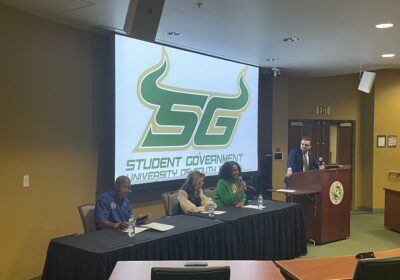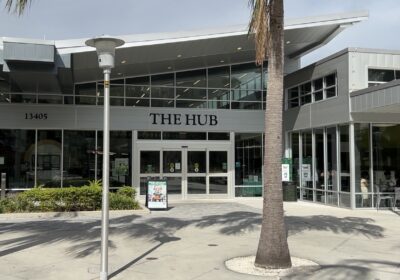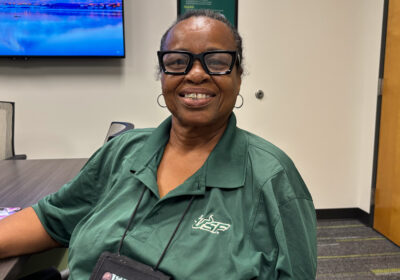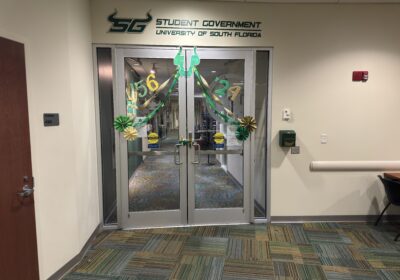Meet the candidates: Sebastian Solano and Jessica Malanga
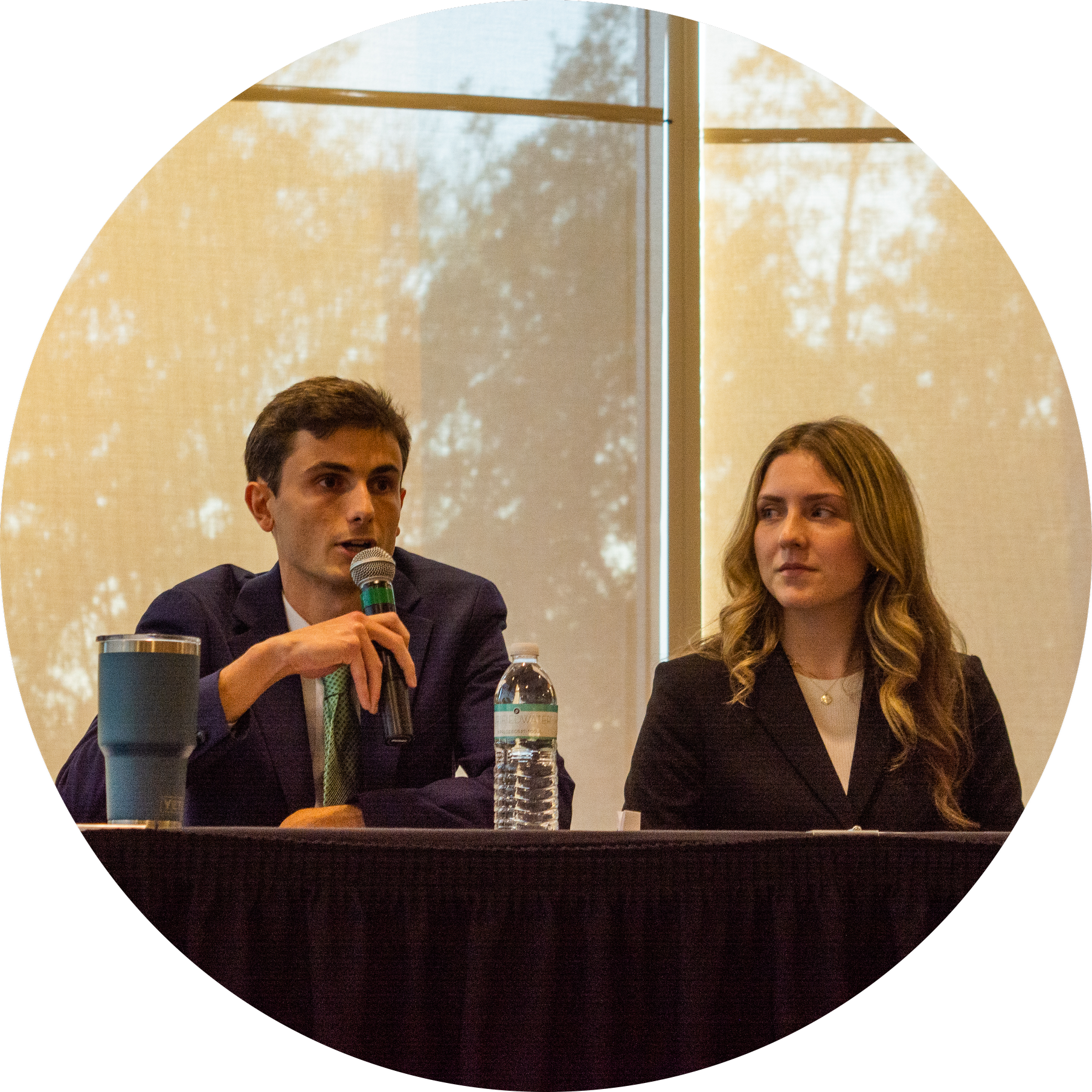
Juniors Sebastian Solano and Jessica Malanga said their involvement with organizations outside of Student Government (SG) makes them more approachable to students. By understanding what the community needs from them, Malanga said the pair wants to put “students” back in SG.
“One of the main things I see is a disconnect between the student body and the Student Government,” Malanga said. “We really want to be that liaison, and that friendly face for students.”
The candidates’ campaign acronym, T.H.R.I.V.E., is composed of six main objectives: transparency, health, resources, integration, vision and empowerment.
The objective of transparency is to keep students involved during the process of achieving goals on campus, according to Solano. By holding town halls and meetings, the candidates said they hope it establishes an open door feeling to SG.
“Having an online meeting once a month to give [students] updates on what we are doing for them,” Solano said. “Showing them that their voices are being heard, instead of not hearing anything for months and finally hearing that the goal was achieved.”
Due to the student body’s lack of awareness on how SG can be used as a resource, Malanga said the pair wants to ensure communication channels are open for students and student organizations.
“We don’t want to wait for students and organizations to come to us, we want to go to them,” Malanga said. “We want to hear their concerns and seek them out, ask them what they need.”
For the health pillar of their campaign, the presidential and vice presidential candidates’ focus is on mental health resources following the pandemic, such as highlighting the existing online platform TimelyCare offered by the Counseling Center. Solano said their main objective with improving the resource is by hiring more diverse staff.
“USF is a very diverse school and we have a lot of students from different countries and states,” Solano said. “We want counselors from the same background so students feel like they can actually open up, and not that they are talking to a stranger who is getting paid to listen to them.”
Their goal for the resources pillar is not only to highlight current campus resources, Solano said, but to improve them along the way. He said tutoring is already set for chemistry and math-related courses, but the pair wants to provide more tutors for writing and English majors on campus.
To ensure students have a space to properly communicate their concerns, Malanga said they aim to create student advisory councils at the Tampa campus. The duo said they want to ensure students can pinpoint the people who can help with any specific issue.
“I think that by listening to students, creating that dialogue and space for people to share what they actually want and need from school, we can better meet their needs and provide the right resources,” Malanga said.
The pair said they recognize that paying for college is a concern among students. Solano said part of his plans to allocate more money to financially aid students by working on strengthening alumni relations and hosting fundraisers.
Solano said further exploring connections with alumni and ensuring they are directly engaged in helping other students succeed can be very beneficial to the institution. Plans to explore connections with alumni were not specified at the time of the interview.
As students still identify parking on campus as a main issue, Solano and Malanga said rezoning parking lots would be more of a long term goal. Instead, the pair wants to make sure long-distance commuters have the space to park on campus by providing other modes of transportation to those who live closer to campus.
“We want to implement Bird scooters on campus, because I think most parking spaces are being taken by five minute commuters,” Solano said. “Eliminating those students from parking and advertising the shuttles would limit the parking traffic.”
With the integration pillar, the candidates said they want to establish a relationship with the St. Pete and Sarasota-Manatee campuses, bridging departments to create a unified USF. In addition, Solano said they want students to know they can participate in intercampus organizations.
Intercampus transportation has been an issue in most candidates’ platforms over the last few years, according to Solano. As part of Solano and Malanga’s goals, the pair said they want to provide a better foundation for this project, but recognize that it may not be achieved by the end of their one year term.
Under their campaign’s vision pillar, Malanga said the pair took time to determine specific, achievable measurable goals for their term. Before leaving office, the candidates want to bring back “reading days” at USF to ensure academic pressure does not interfere with students’ final grades, Malanga said.
“Two days before finals week where school is canceled, classes cannot be held, professors cannot assign last minute projects or quizzes,” Malanga said. “I think these last-minute projects can really add to the stress, and take away from a student’s educational experience.”
As both Solano and Malanga are involved with student organizations, Malanga said the pair wants to work on a better solution for outreach and advertising of various organizations on all three campuses.
For the final pillar, empowerment, the candidates said they want to empower students in the institution so they can have a better transition from student to employee on the market. Malanga said one of their priorities is ensuring international students find jobs out of college.
The empowerment pillar also involves promoting student voices. Malanga said one of the objectives is to bring back USF city hall days, where students can voice their concerns to create confidence for students to advocate for themselves.
“These things really make the student experience,” Malanga said. “We want them to feel like they have a voice and are able to advocate on their own behalf. Not everything has to be through Student Government.”

